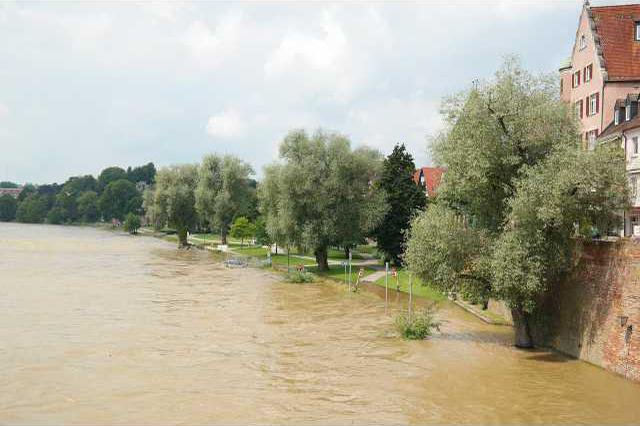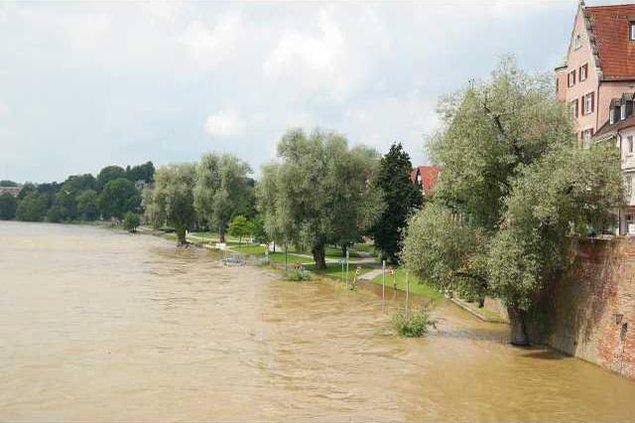After another summer of wildfires and floods, September marks the annual National Preparedness Month.
According to the National Oceanic and Atmospheric Administration, National Preparedness Month strives to educate Americans to prepare for and respond to every type of emergency.
Richard Woodruff, director of communications for the American Red Cross, identified five important ways people can prepare for an emergency.
When people are prepared, their training kicks in just like a first responder arriving at an emergency, Woodruff said. Otherwise they can panic due to being ill prepared.
The following list details the ways one can prepare for an emergency.
Make a plan: Establishing a meeting place with loved ones in the event that people become separated is one way to prepare for an emergency, Woodruff said. Individuals can take additional precautions by not hanging heavy pictures above the couches in their homes, planning an escape route in case of a fire, and backing their car into their driveway during wildfire risk so they can make a quick escape.
Make a 72-hour kit: In a 72-hour kit, each person should pack a gallon of water per day, Woodruff said. Additional items to keep in a 72-hour kit are a flashlight, radio, phone chargers, protein bars, cash, a first aid kit and toiletries.
Download the right apps: The American Red Cross has a number of free apps that provide information for the before, during and after events of emergencies, Woodruff said. Mobile applications include tips for wildfires, flood, first-aid and more. Users can even learn how to build a 72-hour kit. Visit the American Red Cross website to learn more about these apps.
Check smoke alarms: Woodruff said they respond to house fires more than anything else, and The American Red Cross advises people to change the batteries each time they change their clocks for daylight saving time. As part of its Home Fire Campaign, the American Red Cross will install smoke alarms for anyone who needs one at no cost. Those interested in this service can call 801-323-7004 to schedule an installation.
Learn CPR: For every minute that passes without CPR and defibrillation, a victims chance of survival decreases by seven to 10 percent, the American Red Cross reported. Woodruff said its important to get CPR trained, and one can do so by taking a class.
According to the National Oceanic and Atmospheric Administration, National Preparedness Month strives to educate Americans to prepare for and respond to every type of emergency.
Richard Woodruff, director of communications for the American Red Cross, identified five important ways people can prepare for an emergency.
When people are prepared, their training kicks in just like a first responder arriving at an emergency, Woodruff said. Otherwise they can panic due to being ill prepared.
The following list details the ways one can prepare for an emergency.
Make a plan: Establishing a meeting place with loved ones in the event that people become separated is one way to prepare for an emergency, Woodruff said. Individuals can take additional precautions by not hanging heavy pictures above the couches in their homes, planning an escape route in case of a fire, and backing their car into their driveway during wildfire risk so they can make a quick escape.
Make a 72-hour kit: In a 72-hour kit, each person should pack a gallon of water per day, Woodruff said. Additional items to keep in a 72-hour kit are a flashlight, radio, phone chargers, protein bars, cash, a first aid kit and toiletries.
Download the right apps: The American Red Cross has a number of free apps that provide information for the before, during and after events of emergencies, Woodruff said. Mobile applications include tips for wildfires, flood, first-aid and more. Users can even learn how to build a 72-hour kit. Visit the American Red Cross website to learn more about these apps.
Check smoke alarms: Woodruff said they respond to house fires more than anything else, and The American Red Cross advises people to change the batteries each time they change their clocks for daylight saving time. As part of its Home Fire Campaign, the American Red Cross will install smoke alarms for anyone who needs one at no cost. Those interested in this service can call 801-323-7004 to schedule an installation.
Learn CPR: For every minute that passes without CPR and defibrillation, a victims chance of survival decreases by seven to 10 percent, the American Red Cross reported. Woodruff said its important to get CPR trained, and one can do so by taking a class.

